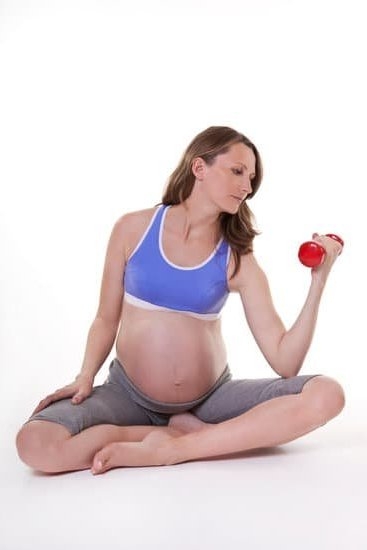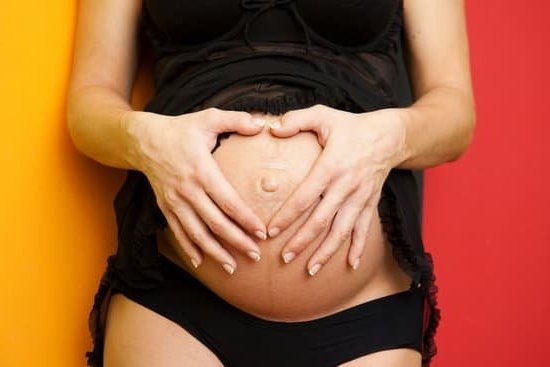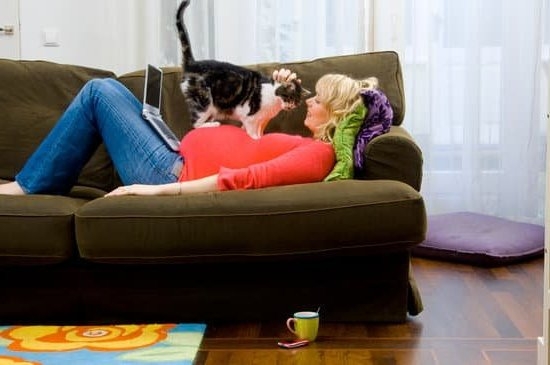Introduction
Hair dyeing is a process used to temporarily change the color of one’s hair. It usually involves using dyes and chemicals to alter the hue of a person’s hair, creating a range of shades depending on the kind and concentration of chemicals used. For pregnant women, however, hair dyeing should be done with extra caution as the chemicals involved can be harmful for both the mother and unborn baby. Other factors to consider are if you are experiencing nausea or vomiting, or other medical complications during pregnancy, as well as consulting a doctor before going ahead with any type of chemical treatment. Additionally, it may be best to use natural dyes instead of chemical ones which can have fewer side effects.
Safety Concerns
Yes, you can dye your hair in pregnancy, however precautions should be taken. Synthetic hair dyes and non-metallic temporary dyes are generally considered safe to use during pregnancy, however as with all things it is important to consult your doctor first before using them. The synthetic hair dyes contain chemicals that may not be absorbed directly into the bloodstream but in some cases, these same chemicals could be inhaled. This could cause irritation or even allergic reactions to the skin of a pregnant woman which could negatively affect her unborn baby. It is therefore important to discuss with your doctor any questions or concerns you have before moving forward.
In addition to doing so, it is important to make sure the products used are applied correctly. Those that contain amines or ammonia should be avoided at all costs as they have been linked to breathing difficulties when inhaled through vapours. Permanent hair dyes should also be avoided during pregnancy because they usually have a higher concentration of chemicals which might harm both the mother and her developing baby if used incorrectly.
There are options for those who do not want to risk using chemical dyes. Colours made using natural ingredients such as henna, indigo (or other plant extracts) can be used instead and these tend to be non-toxic and less likely to cause health problems associated with chemical exposure during pregnancy. It is still important however for expectant mothers who choose this option that careful research is done prior and discussion had with their healthcare provider prior for safety reassurance as some plants may contain toxins and bacteria that can potentially harm a growing fetus in utero if left unchecked and undiscussed beforehand.
Ask the Experts
Expert insight is divided on this topic. While some experts feel safe to dye hair during pregnancy, others are completely against it. For those who feel safe doing it, they often recommend waiting until the second trimester so that any effects to the baby or mom-to-be can be monitored. Furthermore, being comfortable with using ammonia and peroxide free dyes, or using herbal dyes are better alternatives. It’s always best to consult with a qualified health care provider before undertaking any beauty treatment while pregnant. It’s also important to consider what the effects may be after pregnancy since some changes in hormones due to pregnancy might affect the outcomes of hair dyeing that was done prior. Overall, caution should always be taken when deciding to dye your hair while pregnant.
Natural Alternatives
Organic and natural alternatives to chemical hair dyes are becoming increasingly popular for people looking for a safer way to color their hair, especially for pregnant women. While dyeing your hair during pregnancy is generally considered safe, some women may wish to take extra safety precautions in order to avoid potential risks of exposing themselves or their unborn baby to potentially hazardous toxins and ingredients. For those who would rather use natural hair dyes while pregnant, there are a number of organic and natural options available that provide beautiful coverage without any of the synthetic chemicals.
Organic vegetable-based dyes such as henna and indigo can be combined to create a variety of shades with excellent coverage, while honey-based dyes help to naturally lighten strands. Chamomile tea baths and lemon juice rinses can also be used to gently highlight the hair without damaging it or causing irritation. Other natural mixtures include coffee grounds, sage leaves, saffron powder, burnt rosemary branches or beet juice mixtures – all of which can produce unique colors without any harsh chemicals.
Preparations
Before visiting the salon, pregnant women should take a few extra precautions. It is important to let your stylist or color technician know that you are pregnant before they begin the process. This will ensure they use hair dyes and products neutral to protect your baby’s health. Additionally it is advised that pregnant women opt for darker colors because fewer chemicals are used to create them. Furthermore, it is advised to only have contact with minimal amounts of dye as this minimizes exposure to any potential toxins contained in the dye. Finally, make sure not to inhale or ingest any type of dye product as this can be dangerous for both mother and child.
Salon Protocols
Many salons have implemented additional protocols to ensure the safety of pregnant clients. Many stylists now wear hair masks and nitrile gloves while coloring hair, to prevent the spread of bacteria, dust, or other possible contaminants. Most salons also use an efficient air exchange system to rid the area of harsh fumes during the dying process. Additionally, many salons now draw a minimum safety line for dyeing hair when pregnant. Generally, it is recommended that coloring only be considered if absolutely necessary and individual client health is assessed on a case-by-case basis by their healthcare provider. In any event, for pregnant women that decide to dye their hair, clients are strongly advised to avoid direct application near the scalp from chemical dyes or highlighting agents and opt for more gentle styles such less intrusive low lights or using vegetable dyes instead of bleach or permanent dyes when feasible. By taking the appropriate precautions, salons can make sure that pregnant women can get their much-needed haircuts and color treatments in a safe environment.
Aftercare
One of the most important steps for keeping color treated hair in good condition is to use specialized treatments. There are many products on the market designed specifically for pregnant women and their color-treated hair. These treatments are usually sulfate-free and free of other harsh chemicals that can cause damage to hair and scalp. Also, look for products that contain moisturizers such as argan oil or aloe vera gel, as these will help to keep your hair looking nourished and healthy. Additionally, you should always use a shampoo and conditioner specifically formulated for either dyed or highlighted hair, as this will help prevent discoloration due to wash out. Finally, don’t forget to use a heat protectant before you use any hot tools on your hair! This will help ensure that your style lasts longer and doesn’t lead to further damage.
Resources
During pregnancy, it is not recommended to dye your hair. Hormonal changes can affect the absorption of chemicals in your scalp, which may cause a reaction for some women. There is also a general concern about the potential toxicity of hair dyes and its effects on unborn babies that has yet to be fully studied or determined. However, if you feel strongly about coloring your hair, then seek out a professional salon and ask them their opinion—most salons should have bulkier gear for protective measures such as gloves and face masks for you and your hairstylist to wear—and consider seeking further advice from an OB/GYN prior to scheduling any treatment. Some hair professionals recommend using semi-permanent colors rather than full color dyes, as they contain significantly fewer chemicals that could potentially harm the baby.
For more information or resources on dyeing hair during pregnancy, there are numerous online forums including Healthline, The Bump, WebMD and Baby Centre where experienced mothers can give tips according to their own experiences. Additionally, there are beauty blogs like Tips For Expecting Moms and Contact Hair Clinic which provide helpful advice surrounding hair treatments while pregnant. Furthermore, it’s always important to pay attention to product labels or ingredients when considering dyeing one’s hair while pregnant; this will help determine what types of chemicals or ingredients should be avoided while expecting.
Conclusion
Overall, it is safe to dye your hair while pregnant. However, it is best to err on the side of caution and avoid coloring your hair during the first trimester until more research has been conducted regarding potential risks. If you do decide to color your hair while pregnant, there are some precautions you can take to ensure that any chemicals or dyes used are properly disposed of and will not come into contact with your skin or scalp. As always, consulting with a doctor is recommended for any decision that affects pregnancy health.

Welcome to my fertility blog. This is a space where I will be sharing my experiences as I navigate through the world of fertility treatments, as well as provide information and resources about fertility and pregnancy.





